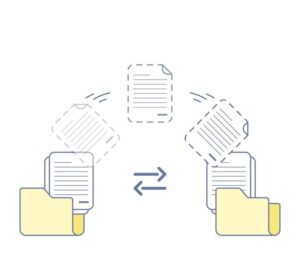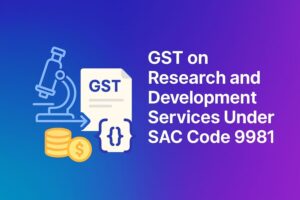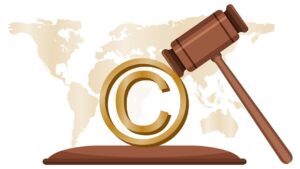Penalty on Wrong Availment of ITC Under GST
- 1 Sep 25
- 7 mins
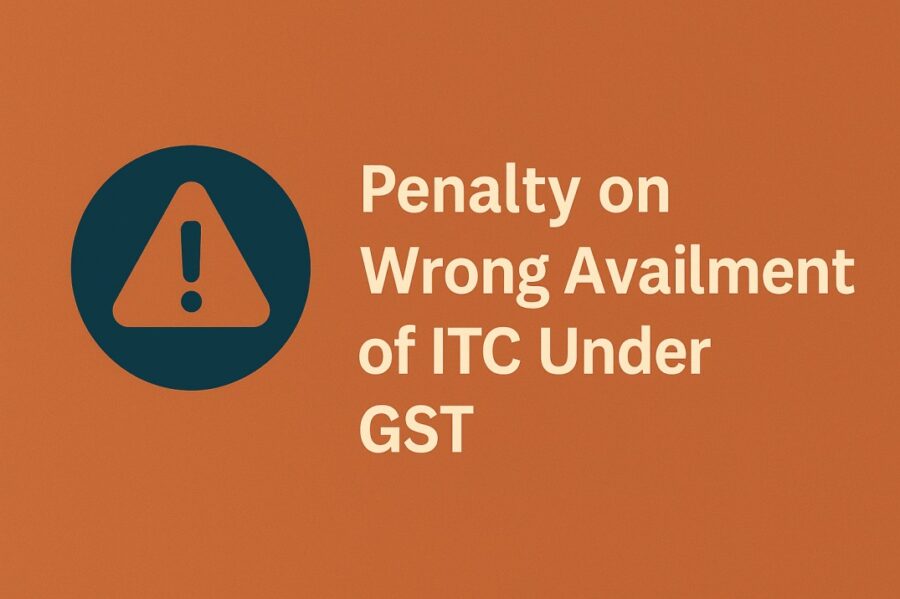
Penalty on Wrong Availment of ITC Under GST
Key Takeaways
- Wrong availment of Input Tax Credit (ITC) under GST attracts heavy penalties and interest as per Section 122 of the GST Act.
- Taxpayers using fake invoices or claiming ITC without actual goods/services are liable to pay a penalty of 100% of ITC or ₹10,000, whichever is higher.
- As per Section 50 of the CGST Act, interest up to 24% is applicable on wrong utilisation of ITC.
- Judicial rulings highlight that penalties for wrong ITC claims under GST depend on whether the act was deliberate or a genuine error.
- Businesses must ensure GST compliance to avoid penalties, legal disputes, and financial consequences of unlawful ITC claims.
Since the implementation of the Goods and Services Tax (GST) regime in India, the concept of Input Tax Credit (ITC) has been instrumental in reducing the cascading effect of taxes and output tax liability. However, the GST framework comes with strict provisions to ensure that ITC is availed lawfully.
Wrongfully claiming ITC can lead to hefty penalties under the GST laws. In the following overview, we will take you through the applicable penalty on wrong availment of ITC under GST along with provisions of Section 122 of the GST Act.
What is the Penalty for Wrong Availment of ITC Under GST?
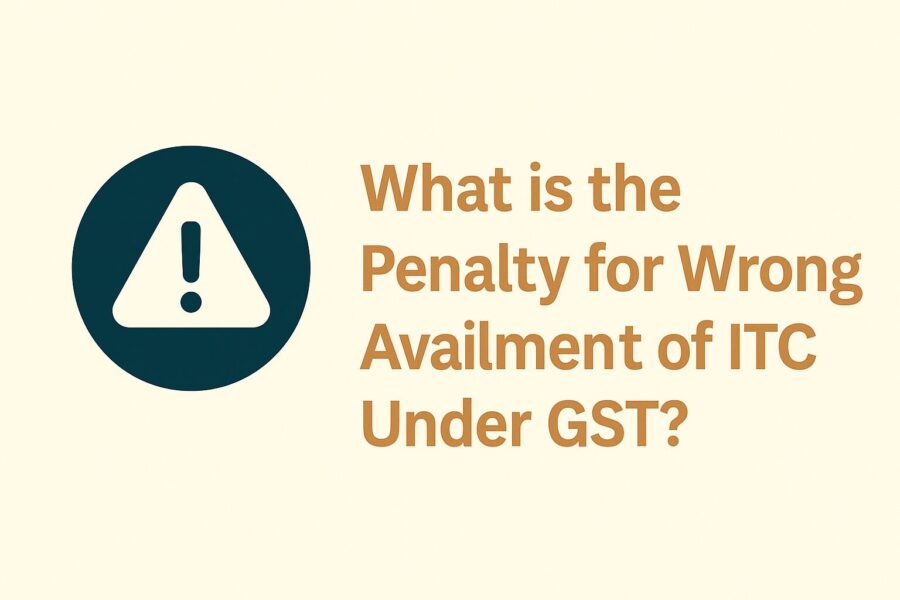
Wrong availment of ITC refers to circumstances where taxpayers claim input credit on either of the following grounds:
- Ineligible to claim ITC under GST
- Usage of non-existent fake invoices
- Without receipt of goods or services
- When the taxpayers have failed to pay GST.
Wrongful claims of ITC can not only incur hefty penalties but also bring down the tax revenue of the government. Thus, the department levied a penalty structure to ensure compliance with the law. Take a look at the penalties for inaccurate input tax credit claims:
- Unreasonable Availment: If taxpayers falsely claim ITC but fail to utilise it, they should reverse the claimed amount with interest to avoid further proceedings.
- Penalty Amount: If GST-registered vendors have claimed and used credits faultily, then they should pay a penalty of either 100% of their credits or ₹10,000, whichever is higher.
- Applicability of Interest: As per an amendment of 01.07.2017 in Section 50 of the CGST Act, interest will apply only for mistakenly availing and utilising ITC. The interest rate can reach up to 24%.
Note: The department will run an enquiry based on the wrong utilisation of ITC. If they find that the claim was deliberately made, the authorities can increase the fine.
What are the Judgments Around the Wrong Availment of ITC?
National and state courts have furnished several judgments over the years on the wrongful claiming and utilisation of ITC. Here are some of the popular judgments that will help you understand how the penalty mechanism works:
- M/s Aathi Hotel vs. Assistant Commissioner (ST), 2021
In 2021, the Honourable Madras High Court received a case where the taxpayers claimed the credit but did not use it. The Madras HC presented judgment in favour of the vendor, declaring zero payable amount, neither penalty nor interest.
However, the court highlighted Section 122 of the GST Act, mentioning that paying a penalty is mandatory for unlawful ITC claims. The decision here reflects that although a penalty may not always apply, adherence to regulations is crucial.
- Pratibha Processors vs Union of India, 1996
The Honourable Supreme Court of India addressed the case. As per the court, while interest on penalty imposition was introduced to compensate for the late tax payments, the penalty was employed to eliminate wrongful availment of ITC.
This declaration from the court played a key role in determining whether the incorrect availment of ITC was a mere oversight or an intentional act.
- Reflex Industries Ltd vs. Assistant Commissioner, 2020
In 2020, the Madras High Court addressed the ITC’s denial of input services prior to the introduction of ITC. As per the petitioner, the denial brings nothing but unnecessary hardship. The court furnished a judgment in favour of the taxpayer, defining that the provisions of GST must align with the objective of the law.
Additionally, the court also mentioned that the limitations regarding ITC must be impartial, offering fair tax treatment to all dealers.
What are the Provisions of Section 122 of the GST Act?
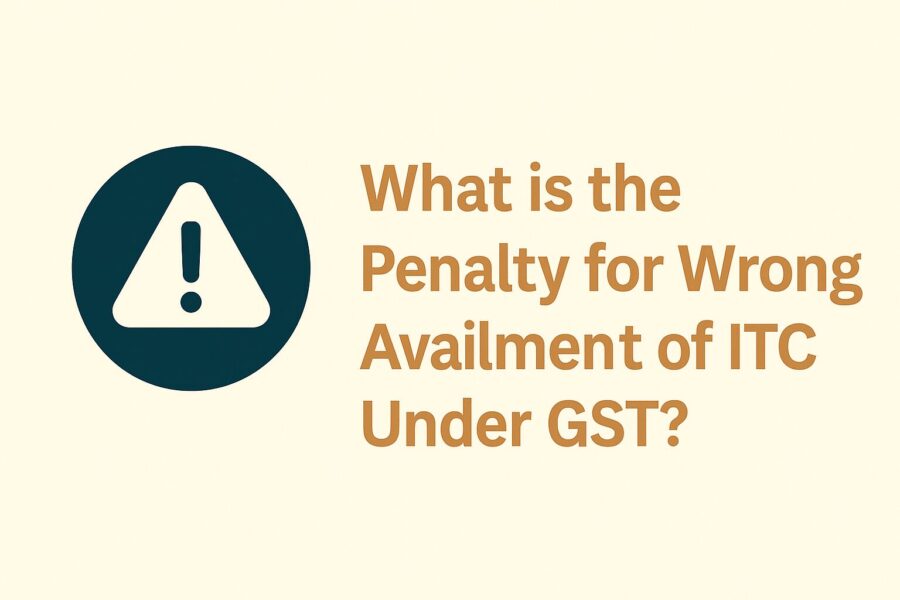
Here are some of the GST provisions of Section 122 of the GST Act:
- Any person with GST registration who supplies goods or services or both is subject to pay a penalty if he/she has:
- Zero payment on input services
- Paid less than the original tax amount
- Wrongly refunded
- Falsely claimed the ITC and utilised it
- For fraudulent activities, misstatement or evading tax, a penalty of 10% of the total taxable amount or ₹10000 will be applicable, whichever is higher.
Conclusion
GST-registered taxpayers must comprehend this structure of penalty for wrong availment of ITC under GST. It allows taxpayers to stay safe from legal complications and financial consequences. While ITC can significantly benefit taxpayers by saving on taxes, falsely claiming ITC can do more harm than good.
💡If you want to streamline your payment and make GST payments via credit, debit card or UPI, consider using the PICE App. Explore the PICE App today and take your business to new heights.
FAQs
What is meant by wrong availment of ITC under GST?
What penalty applies for wrong ITC utilisation under Section 122 of the GST Act?
Is interest applicable on wrong availment of ITC under GST?
What are some important court judgments related to ITC penalties?
How can businesses avoid penalties for wrong availment of ITC?









